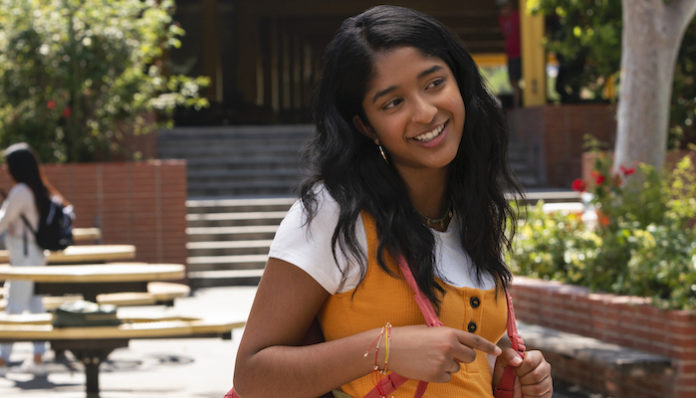
When I finished Netflix’s latest show, Never Have I Ever, the first thought that came to my mind was, “Thank God that Mindy Kaling and Netflix are giving Indian-American kids a true voice!” Never Have I Ever embodies everything I felt as an Indian-American teenager.
Mindy Kaling is a wonderful brown goddess. She wrote the series to highlight the intimate parts of being an Indian teen who’s born and raised in America. Furthermore, Kaling wrote Never Have I Ever in such a unique way that the show blew me away. I watched the teaser and assumed that the series is a comedy about a teen balancing being Indian and American. But surprisingly, the show blew me away in the first five minutes and left me wanting more.
Devi Vishwakumar is hoping to get a hottie boyfriend and shed her status as an unpopular “nerd.” But what begins as a desperate prayer to the gods (yes, multiple gods) to change her luck turns into a journey for the teenager who was born in one culture and tries to assimilate into another.
The series follows Devi as she navigates her identity as an Indian-American teen.
The arrival of Never Have I Ever is a watershed moment for the South Asian community. As a South Indian woman, seeing representation that’s (for once) not North Indian makes me rejoice inside. The show references South Indian languages and foods, which is a pleasant deviation from people assuming that all Indians are “Patels” or “Shahs” who love chicken tikka masala.
Also, Devi’s mother’s struggles with the death of her husband, which sheds light on Indian grieving. In Indian culture, grieving often involves emotional distancing. The “Ganesh Puja” episode, in which Indian aunties swarm Nalini and ask her nosy, condescending questions, also represents how an Indian family might react after a family member’s death. Overall, this show presents Indian families in an honest, slightly acerbic way, which I genuinely appreciate.
Furthermore, Never Have I Ever completely debunks the stereotype that Indian-American teens are all straight-laced and innocent. Devi desperately wants to have sex with Paxton Hall-Yoshida instead of grieving for her dad. Devi becomes so obsessed with Paxton that she misses out on Fabiola coming out and Eleanor’s struggles with her mother.
In other words, Devi is just like any other teenage girl.
Never Have I Ever is transformational for South Indian-Americans because it bucks stereotypes and shows Indian-Americans in a more diverse way. The show is fresh and engaging, especially if you’re Indian-American. Even if you aren’t, I highly recommend that you check it out!
Feature Image via Netflix


















